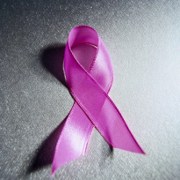 Photo: Getty Images
Photo: Getty Images
According to a study in the Journal of the American Medical Association (JAMA), mammography has lower accuracy if the woman has a prior history of breast cancer.
The procedure is already known for its inaccuracies and the results you get can depend on how much experience the radiologist has in looking at mammogram pictures.
“We found that radiologists who interpreted more mammograms a year had clinically and statistically significantly fewer false-positive findings—without missing more cancers," said Diana S.M. Buist, PhD, MPH, a senior investigator at Group Health Research Institute.
"That means radiologists with higher 'interpretive volumes' could identify the same number of cancers, while making fewer women come in for extra tests that showed they did not have cancer. On average, for every cancer detected, 22.3 women were called back for more testing.”
False-positive results and unnecessary subsequent testing waste around 1.6 billion dollars every year.
Now, it seems that mammography can also give false-negative results.
The authors of the JAMA study wrote, "The high prevalence of breast cancer survivors is due to general gains in life expectancy and to improved survival in women with a personal history of breast cancer (PHBC), attributable to improvements in local and systemic treatments and early detection. Women with PHBC are at risk of developing second breast cancers and are recommended for annual screening mammography, but few high-quality data exist on screening accuracy in PHBC women."
The risk of a mammogram failing to pick up a secondary breast cancer was worse when the women had invasive cancer.
Women with PHBC had 655 second cancers (499 invasive, 156 ductal carcinoma in situ) and women without PHBC had 342 cancers (285 invasive, 57 ductal carcinoma in situ) within one year of screening mammography. Cancer rates were 10.5 per 1,000 screens in PHBC women, compared to 5.8 per 1,000 screens in non-PHBC women. Cancer rates, cancer detection rate, and interval cancer rate (number of false-negative results among 1,000 mammograms) were 1.3 to 2.6 times higher for PHBC screens compared with matched screens.
"In general, screening did not perform as well in PHBC women relative to that in women without PHBC; sensitivity and specificity were lower for PHBC women, and screening examinations were approximately twice as likely to be recommended for additional imaging or biopsy," the authors wrote.
The researchers still think that annual mammograms are beneficial to survivors of breast cancer but say the test needs further evaluation and that alternative or additional tests may be needed.
Sources: JAMA. 2011;305[8]790-799 and Diana Buist of Group Health Research Institute.
Joanna is a freelance health writer for The Mother magazine and Suite 101 with a column on infertility, http://infertility.suite101.com/. She is author of the book, 'Breast Milk: A Natural Immunisation,' and co-author of an educational resource on disabled parenting, in addition to running a charity for people damaged by vaccines or medical mistakes.






Add a Comment4 Comments
So glad you beat your cancer! I have taken a look at your article too :)
March 6, 2011 - 6:13amThis Comment
Hi Joanna - Thanks for writing about this study. Far too many resources directed at women don't provide adequate information about mammography. As a breast cancer survivor I often have to battle health insurance policies that assume all screenings are the same in order to obtain appropriate screenings. I found this study very helpful, and wrote about it too: https://www.empowher.com/breast-cancer/content/study-breast-cancer-survivors-should-not-rely-solely-mammography-screenings
Take care,
March 2, 2011 - 1:50pmPat
This Comment
The term sufferer in the title was meant to describe going through the actual illness, as it says 'prior' and the pain women go through with the disease and treatments and surgeries etc. It is certainly not meant to describe how the situation is now for breast cancer survivors and I am in no way implying that survivors of cancer are suffering.
March 2, 2011 - 1:18amBut I take note and will use the term 'patient' for any future articles.
This Comment
How sad to see the phrase "sufferers" used to describe the women who are breast cancer suvivors. Any one who has been through the ordeal of this disease and made it through to the other side is not a victim or a sufferer.
March 1, 2011 - 8:50pmThis Comment